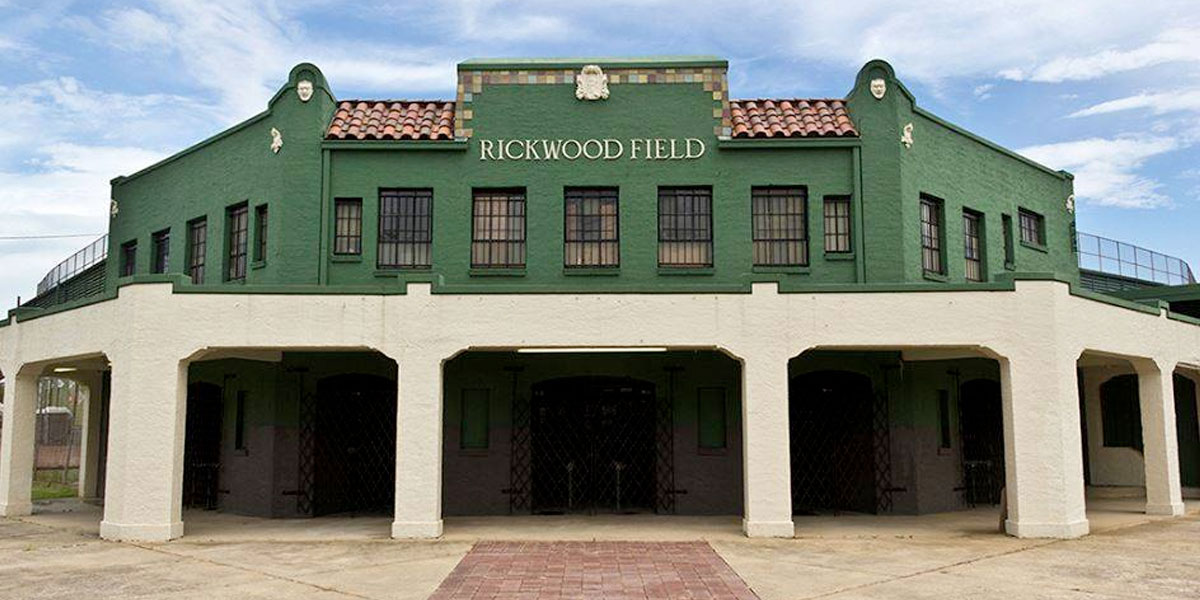Historical Significance of Rickwood Field

Rickwood Field, established in 1910, holds a significant place in the history of baseball and the city of Birmingham, Alabama. As the oldest professional baseball park in the United States, it has witnessed numerous historic events and played a pivotal role in shaping the sport in the region.
The construction of Rickwood Field marked a turning point for Birmingham’s baseball scene. Before its establishment, the city lacked a dedicated baseball stadium, with teams playing in various makeshift fields. Rickwood Field provided a permanent home for the Birmingham Barons, a minor league team that became a beloved institution in the community.
Rickwood Field and the Development of Baseball in Birmingham
Rickwood Field became a hub for baseball activities in Birmingham. The Barons’ games drew large crowds, fostering a passionate fan base and generating excitement for the sport. The stadium also hosted numerous exhibition games featuring legendary players such as Babe Ruth and Lou Gehrig, further elevating the profile of baseball in the city.
Cultural and Social Impact of Rickwood Field
Beyond its role in baseball, Rickwood Field had a profound cultural and social impact on Birmingham. It served as a gathering place for the community, hosting not only baseball games but also concerts, political rallies, and other events. The stadium became a symbol of civic pride and a source of shared memories for generations of Birmingham residents.
Architectural Features and Design of Rickwood Field

Rickwood Field, the venerable ballpark in Birmingham, Alabama, stands as a testament to the rich history of baseball and the architectural ingenuity of its time. Its unique design and iconic features have made it a beloved landmark and a source of pride for the city.
One of the most striking features of Rickwood Field is its grandstand, a massive wooden structure that stretches along the first base line. Built in 1910, the grandstand is a marvel of engineering, featuring a series of cantilevered balconies that provide unobstructed views of the field. The grandstand’s intricate latticework and decorative trim add to its architectural charm, making it a true work of art.
Another distinctive feature of Rickwood Field is its outfield wall, which is made of brick and stands at a height of 10 feet. The wall is adorned with ivy, which has grown over the years to create a picturesque backdrop for the game. The outfield wall not only adds to the aesthetic appeal of the field but also plays a strategic role in the game, as outfielders must navigate its curves and angles to field balls.
The playing surface at Rickwood Field is another important aspect of its design. The field is made of Bermuda grass, which is known for its durability and resilience. The infield dirt is a mixture of clay and sand, which provides a consistent playing surface for both pitchers and batters.
To provide a comprehensive view of Rickwood Field’s layout and dimensions, here is a virtual tour using HTML table tags:
| Feature | Dimensions |
|---|---|
| Grandstand | 120 feet long, 30 feet wide, 3 stories high |
| Outfield Wall | 10 feet high, 330 feet long (left field), 350 feet long (center field), 340 feet long (right field) |
| Playing Surface | 90 feet between bases, 60 feet, 6 inches from home plate to the pitcher’s mound |
Rickwood Field, with its storied past and hallowed grounds, stands as a testament to baseball’s rich history. Yet, even within its venerable walls, whispers of change echo. As news of Steph Curry’s trade request ripples through the sports world, one wonders if such seismic shifts could also reverberate within the realm of baseball.
Will Rickwood Field, too, witness the ebb and flow of player movement, shaping its legacy in uncharted ways?
Rickwood Field, the iconic home of the Birmingham Barons, stands tall as a testament to baseball’s rich history. Its hallowed grounds have witnessed countless triumphs and heartbreaks. While the field itself has been the stage for these unforgettable moments, it is the players who bring it to life.
From the legendary the boys cast to the current stars, they have etched their names into the fabric of Rickwood Field, making it a place where dreams are both made and realized.
The hallowed grounds of Rickwood Field, steeped in baseball history, will once again reverberate with the thunder of bats in the boys season 4. This iconic stadium, a testament to the enduring spirit of the sport, will provide the backdrop for a new chapter in the battle between good and evil, as the Boys face their greatest challenge yet.
Rickwood Field, a living legend, stands as a beacon of hope, reminding us that even in the darkest of times, the game goes on.
Rickwood Field, the revered baseball stadium, stands as a testament to the rich history of the sport. Its hallowed grounds have witnessed countless iconic moments, etching it into the hearts of fans. In a recent turn of events, news broke that Stephen Curry, the NBA superstar, has requested a trade.
While the basketball world grapples with this development, Rickwood Field remains a beacon of baseball tradition, a reminder of the enduring power of sports and the unwavering passion of its fans.
Rickwood Field, the hallowed ground where legends were made, stands tall even amidst the modern clamor. Yet, whispers of a distant court echo through its hallowed halls, a court where a maestro named Stephen Curry once held sway. The news of his potential trade stirs a nostalgic ache, a reminder of the ephemeral nature of greatness.
As the sun sets on Rickwood Field, casting long shadows across its hallowed grounds, the legend of Stephen Curry remains intertwined with its own, a testament to the enduring power of sports.